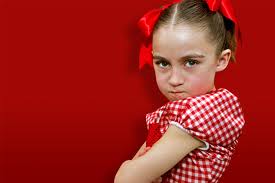Thank you mummy

Before I had my own children, I had very clear ideas about the way in which I was going to bring them up. Having taught so many and seen so many parents 'parent', I thought I knew it all. Hmmm...
The reality, of course, has been very different. There are so many things that I thought I'd do or do better. But life just gets in the way, doesn't it?
The one basic rule I have kept, however, is that my children absolutely must say 'please' and 'thank you'. Almost as they started learning words, I have prompted, encouraged and insisted that they respond politely to adults and children alike. Yes, I am a soft touch in other areas (chocolate, bed-times etc. etc.) but I have been super strict with this and now, I am proud to say, I think they are pretty good at it. They say "please" and "thank you" every time without thinking and people often comment on this - which pleases me no end. And I don't think I'm alone. Did anyone else see that interview where David Beckham said that his kids had impeccable manners? It struck me as such a good reflection on him and his wife that, despite their wealth and fame, they still attached importance to getting the basics right.
You may well be thinking that this is an uncontroversial and obvious thing to be teaching your children and I agree. But, strangely, I do find good manners lacking in many children that I meet. Until recently, I put this down to failings on the parents' part, but I recently heard that, in some cases, it could be a conscious decision.
Yes, nothing is straightforward in parenting and it turns out that there is a school of thought that suggests you should actively discourage your child from saying "please" and "thank you". And, no, these people are not all strange, masochistic or anything like Viz's "Modern Parents". Some of them are otherwise quite normal. For example, a lovely intelligent friend of mine (who shall remain nameless) is very much an evangelist of this point of view. Her rationale is that "pleases" and "thank yous" should come from children because they really feel it and not because they are expected to say it. She thinks that teaching children to say things "parrot fashion" is ultimately bad for them because it stifles their self-expression and suggests that the showing of gratitude is artficial and meaningless.
Now, I love children. I spend a lot of time with them and nothing makes me happier than helping a child to learn, express themselves and discover their place in the world.
But the way children learn how to behave in society is by imitation - through our example. They look to us for direction and the 'rules' in life. And we know that "please" and "thank you" are not to dramatically display gratitude or pleading but to demonstrate appreciation in a small way and to oil the wheels of human interaction in everyday situations.
Human beings are naturally more self-centred and egotistical the younger they are - and this is quite right and quite necessary. They have to put themselves first to survive and develop during their growth period so that they can put others first later. A modern child in the developed world almost certainly feels that food, drink, shelter, clothing and even treats are to be expected. If this is what they've always known, you can't magically conjur up genuine gratitude.
But that doesn't mean that they should act exactly how they feel. Demonstrating and enforcing politeness is about teaching children how to make others feel worthwhile, valued and equal. Saying "excuse me" when you might otherwise say "get out of the way" or "sorry" when you bump into someone is not an artificial or fake social nicety. It may turn into a social habit but it still serves as a genuine attempt to soften the harsh realities of life by showing civility and consideration for others. And isn't thinking of others one of the most important things you can teach your children?
At Perform, every child gets given a special sticker at the end of a workshop to reward them for their individual achievements in that class. Our teachers always expect every child to say a clear and loud "thank you" for it.
Old fashioned perhaps but I make no apology. I certainly don't intend to join the parents who appear to be actively encouraging bad manners under the guise of independence and free expression.
Or am I totally out of touch? Let me know via the comments!










 Recent Posts
Recent Posts Recent Comments
Recent Comments
 Archives
Archives

Leave a comment